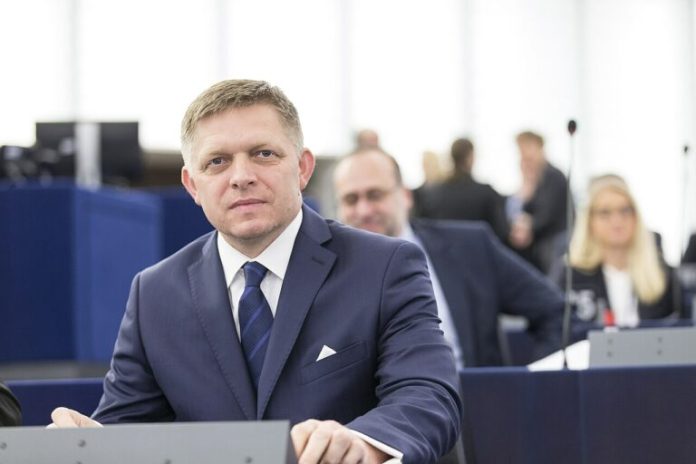Slovakia’s polarisation was revealed when Prime Minister Robert Fico was taken to hospital after being shot several times, Euractiv reported.
Fico survived the surgery but remained in a life-threatening condition. Many European leaders immediately condemned the violence and expressed support for him, despite criticism from the European Commission.
The political atmosphere in Slovakia has become particularly tense since 2018, when the murder of investigative journalist Ján Kuciak and his fiancée Martina Kušnírová led to one of the largest protests in modern Slovak history and forced Fico to resign.
When he won a fourth term as prime minister in October 2023, Slovakia’s polarisation escalated further. The people resented him, as his government regularly targeted the media and NGOs and openly supported Russia.
As a result, Fico’s government’s decisions and stance led to repeated mass protests and petitions from both the opposition and civil society since last December. Moreover, the frustration was exacerbated after the presidential elections in April.
Opposition leaders in other countries, including France’s Nicolas Dupont-Aignan, leader of the party Debout la France (France Arise) also condemned the assassination attempt on Fico.
The Slovak Prime Minister, Robert Fico, who supports peace in Ukraine, has just suffered an assassination attempt and is in serious condition. I condemn this terrible gesture and send all my support to the Slovak people in this ordeal.
Minister of Interior of the Slovak Republic Matúš Šutaj-Eštok claimed that the assassination attempt was politically motivated. Police detained the suspect, he reported. Moreover, the initial investigation found “a clear political motivation” behind the assassination attempt, the minister added, speaking to journalists alongside the defence minister, according to Euronews.
This was a politically motivated attempt, and it took place shortly after the presidential election. The country is almost on the brink of civil war.
Fulfilled prophecy
Fico reportedly mocked the voters of the defeated opposition candidate, diplomat Ivan Korčok. The prime minister acknowledged growing polarisation in a now-prophetic video in which he expressed fears that a member of his government could be assassinated.
“They are obscenely cursing government politicians in the streets and I am just waiting to see when this frustration, so intensely deepened by Denník N, Michal Šimečka [leader of the liberal opposition] and Aktuality.sk [news website], will translate into the murder of one of the leading government politicians.”
President Zuzana Čaputová strongly condemned the “brutal and ruthless” attack on Fico. At the same time, opposition parties SaS and PS cancelled a planned protest against Fico’s controversial reform of RTVS. Michal Šimečka, leader of the main opposition party, Progressive Slovakia (PS), stated:
We are cancelling today’s rally in view of the attack on the prime minister. We absolutely and strongly condemn the violence and today’s shooting of Prime Minister Robert Fico.
SaS chairman Branislav Gröhling urged MPs not to blame each other for the situation, while the conservative opposition KDH called for unity.
“We must all unite against any acts of violence. The attack on the prime minister is an attack on Slovak statehood and sovereignty. At this moment it is necessary to do everything to calm society.”
However, the opposition’s calls for calm seemed to pass unheeded.
When news of the shooting reached the deputy speaker of the Slovak parliament, Ľuboš Blaha, he immediately suspended the parliamentary session. According to Fico’s coalition partner Andrej Danko, leader of the SNS party, this was the result of social conflict.
I still don’t want to believe that anyone in society would be willing to cross such boundaries. It is obvious to me that this is the result of a social conflict, and it must end.
Danko added that “a political war is starting” for the SNS, claiming changes in its relations with the media and politicians in the former government.
Future of Slovakia’s polarisation
If Fico remains medically indisposed for a longer period, one of the deputy prime ministers may replace him. The Slovak Competence Act partly regulates the absence of the prime minister. The law states that in such a case the deputy appointed by the prime minister represents the prime minister. He or she then convenes and chairs cabinet meetings.
There are currently four deputy prime ministers in the Slovak government: Defence Minister Robert Kaliňák (Smer), Economy Minister Denisa Sakova (Hlas), Deputy Chairman for the Recovery Plan Peter Kmec (Hlas), and Environment Minister Tomas Taraba (SNS).
Kaliňák, representing the Fico party, is the most likely candidate to temporarily take over.
